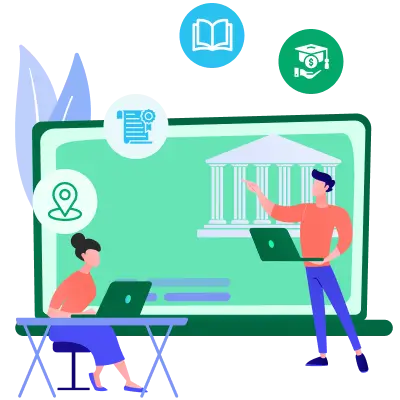Innovation School
We had to stay inside our homes and create a new normal existence because of the global COVID-19 pandemic. Through online lessons and virtual settings, the students were all exposed to the world of technology. Their "school at home" failed to sufficiently prepare them in the fundamental subjects that would have allowed them to continue on to college and finally succeed in the field they had chosen.
Innovation School has developed STEM disciplines to help students who desire to study certain courses overcome all of these challenges. They would benefit greatly from studying disciplines like electronics, CAD and PCB design, drones and augmented reality/virtual reality (AR/VR), software development, and the Internet of Things (IoT) as they made the transition from high school to college. Also, they have a large number of competent and knowledgeable trainers who are eager to teach and train brilliant, attentive brains.
What is Innovation School?
The structure of Innovation School is very layered and flexible. To put it briefly, the first segment focuses on building six key technology abilities at the nexus of hardware, design, and programming. A six-month commitment of 10 hours each skill, or up to 60 hours overall, is necessary. Each session's schedule is adaptable, and training sessions are one-on-one, live, and customized. After six months, the talents complete six guided, practical projects that involve them in a variety of technologies.
‘Makers Residency’ is the next part where the talents spend a week in Goa, engaging in practical learning activities that include problem identification and definition, problem definition and solution creation. Design thinking, frugal innovation, and swift prototyping are all included in this. Each talent collaborates with a few chosen mentors while being observed over by the Maker's Asylum Team. The final product of the residency is a working prototype.
How does it work?
The talents can organize one-on-one training sessions with their assigned mentors. For a period of six months, they must dedicate three hours to online classes and two hours to offline practice each week. Live and interactive sessions are encouraged, and as the talents advance in mastering their skills, they promote back and forth conversation. There is no room in the program for rote learning. Both Talents and Maker Mentors have access to our specific Learning Management System (LMS), which enables them to plan sessions according to their preferences and availability.
‘Box of Innovation’ is a physical hardware kit that is also sent upon enrollment for offline practice and contains all the hardware kits need to acquire the unique skills over the following six months. A drone kit, soldering supplies, a Maker Bee electronics kit, FlashBob the programmable robot, a DiY virtual reality kit, and an Internet of Things (IoT)-enabled table light are all included in the box.
The Makers Residency
After completing the training, students have the option of attending the "Makers Residence" in North Goa. They learn teamwork and collaboration techniques, which are crucial in the real world. Their mentors and the rest of our team assist in modifying their projects before they arrive at the Asylum to ensure that they are finished within the residency. Techniques like design thinking, frugal innovation, rapid prototyping, open source hardware, open source software, technical documentation, and open source licence are introduced to the talents. In addition, they get to use all the equipment provided at the Asylum and receive additional physical training and mentoring in trades like woodworking, laser cutting, 3D printing, and power tools.
The exciting phase of actually developing their idea begins as the talents put all of the knowledge they have gained over the previous six months and the input they have received during the residence to use. The project showcase, which is the finale of the residency, allows the teams to showcase and demonstrate their finished projects live to friends and family.
How to begin your Innovation school journey?
Applicants are accepted throughout the year on a rolling basis, but acceptance is dependent on passing one or more individual interviews, which enables us to make sure that each talent has the necessary ability, attitude, and drive for the school. Following selection, each talent attends an orientation session where they are shown how the program, LMS scheduling, and other aspects of it function. The Maker Residencies are currently scheduled twice a year, and their timing is chosen to avoid conflicting with academic calendars





